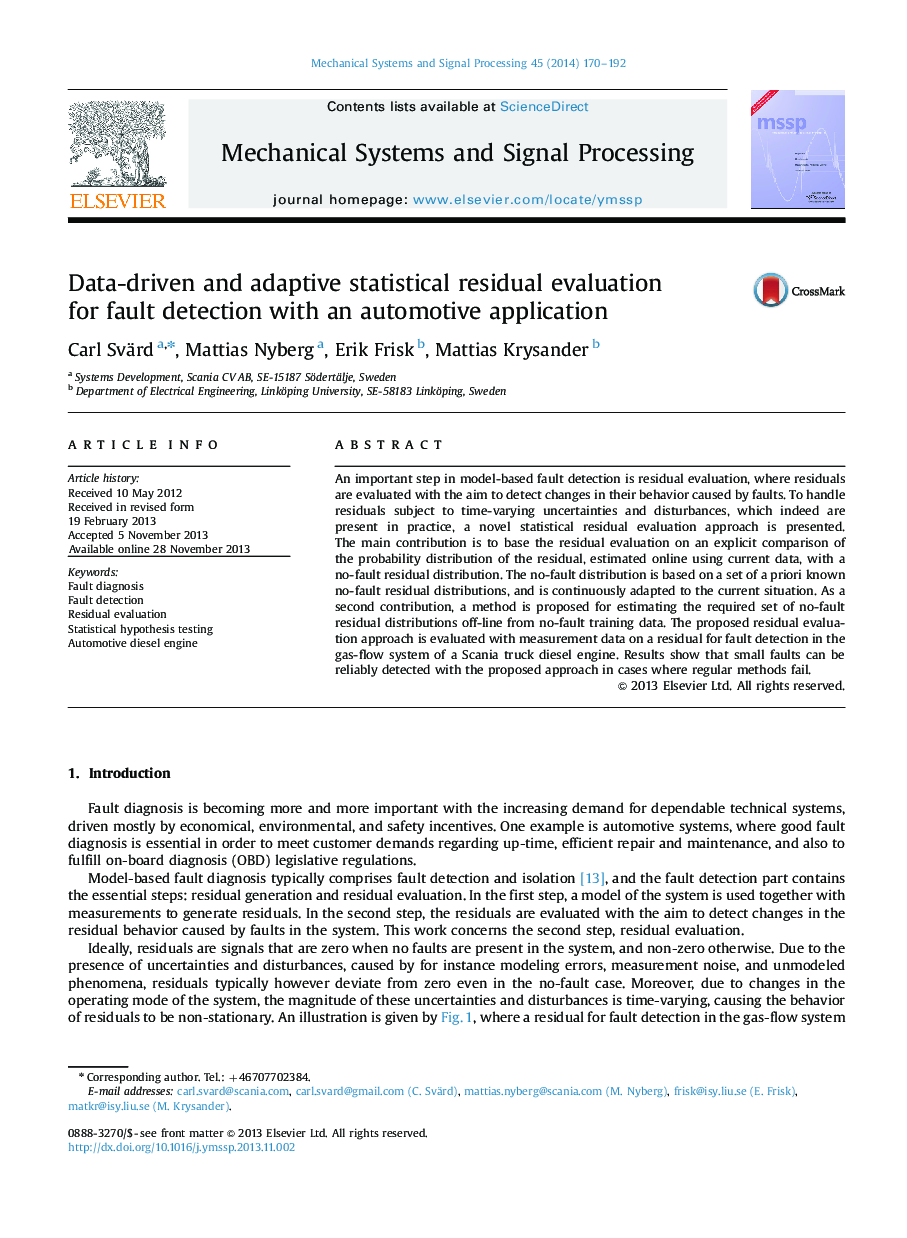| Article ID | Journal | Published Year | Pages | File Type |
|---|---|---|---|---|
| 561122 | Mechanical Systems and Signal Processing | 2014 | 23 Pages |
•A data-driven statistical residual evaluation method is proposed.•The distribution of the residual is compared with known no-fault distributions.•The comparison is done on-line by means of the generalized likelihood ratio.•The no-fault distributions are learned off-line from training data.•The method is successfully applied for fault detection in a diesel engine.
An important step in model-based fault detection is residual evaluation, where residuals are evaluated with the aim to detect changes in their behavior caused by faults. To handle residuals subject to time-varying uncertainties and disturbances, which indeed are present in practice, a novel statistical residual evaluation approach is presented. The main contribution is to base the residual evaluation on an explicit comparison of the probability distribution of the residual, estimated online using current data, with a no-fault residual distribution. The no-fault distribution is based on a set of a priori known no-fault residual distributions, and is continuously adapted to the current situation. As a second contribution, a method is proposed for estimating the required set of no-fault residual distributions off-line from no-fault training data. The proposed residual evaluation approach is evaluated with measurement data on a residual for fault detection in the gas-flow system of a Scania truck diesel engine. Results show that small faults can be reliably detected with the proposed approach in cases where regular methods fail.
